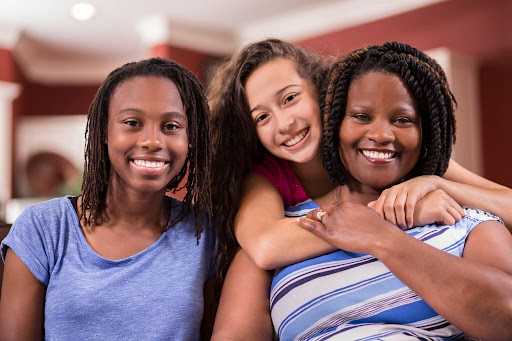You have definitely heard about child adoption in Nigeria many times, but do you know how an adopted child can find a biological parent (father or mother) with a DNA test?
Let’s unravel this real quick…
Over the years, many programs aired on TV, the news, and social media have been based on how people, primarily adults, meet their birth parents for the first time. These are individuals who were either adopted at birth or from foster care for a variety of reasons.
The knowledge of being an adoptee is a well-known fact for children adopted at a much older age, especially from foster homes.
In contrast, children adopted at birth may not be exposed to the truth until their adoptive parents decide to become explicit or until they find out in some way, as movies usually portray.
How Does Child Adoption Work in Nigeria?
Child adoption is a legal procedure in which someone other than the adoptee’s biological parent takes on the parenting role. It is a legal procedure that transfers adoptees’ legal rights to their adoptive parents.
The principal bill concerning child adoption in Nigeria today is the Child’s Right Act of 2003 (CRA), while other existing laws are those of states that had instituted their adoption laws before CRA 2003.
Hence, there is no one-size-fits-all approach to child adoption in Nigeria, which means that the process can vary from state to state. Hence, you must be familiar with the child adoption laws in the state where you reside or intend to adopt the child.
Primarily, adoption is of two types:
- Open Adoption: there is an adequate exchange of relevant origin information between the birth parents and foster parents, regular communication, and sometimes, visitation.
- Closed Adoption: meaningful information about the birth family, such as their last name and origin, is withheld, and contact is avoided.
Adoption can also be informal and relies on the agreement of the child’s guardians or birth parents. This kind of agreement is often made when the parents are not ready to have a child or cannot afford to take care of the child; such agreements are usually temporary.
Who Can Adopt a Child in Nigeria?
Eligibility for adoption is open to anyone willing to adopt. However, in Nigeria, only one person can adopt a child, while two people can only be allowed to adopt a child as a couple. There are also laws in place to determine which gender of the child can be adopted by specific genders of foster parents.
Adopted children, especially those in closed adoption cases, have had great difficulties finding their birth parents or family in the past. These challenges are due to the high level of secrecy or confidentiality involved in their adoption.
However, thanks to technological advances, adoptees can now utilize DNA testing to find their birth parents or family.
How Can an Adopted Child Find Birth Parents with DNA Testing?
As an adoptee, you start by sending in a saliva sample, then wait six to eight weeks for processing before receiving a list of matches. A parent or sibling will immediately present themselves as a match for a small set of individuals.
At the same time, identifying the immediate family will take time and effort from the larger population.
The procedure’s principle is that chromosomal markers in your DNA can be found and tested to detect probable genetic relationships between DNA samples. Genetic testing services will run your DNA sample and cross-reference it with other samples to look for any genetic linkages or matches.
A DNA match, often known as a “cousin match,” occurs when your DNA data is compared to the DNA profiles of other people to detect matching portions of chromosomes that suggest a genealogical link. The amount of DNA you share with another individual determines how closely you are related.
The test findings can tell you how closely your DNA is linked to the DNA of others, which means they can tell you how closely you’re related to someone.
Such tests can determine whether you are genetically linked to direct relatives (siblings, grandkids, cousins, parents, etc.) or distant relatives (second cousins, great-aunts/uncles, common ancestors, etc.). While many services will search databases for you, some may need you to conduct your research yourself.
One of the procedures highly recommended for adoptees is to get an autosomal DNA test. Both men and women can conduct an autosomal DNA test, yielding DNA matches on both your biological mother’s and father’s sides of the family within five to six generations.
To improve your chances, take DNA tests more than once and from various DNA testing centers, allowing your DNA to be matched to a larger group of probable relatives.
The final step involves reaching out to the identified matches. You have to prepare your mind that not all of them may be of help to you, and you also have to consider the privacy rights of those who can assist.
Even when the parents are found, you should consider that they may not want to meet with you. Considering the above factors, the best advice is to employ the assistance of adoption counselors to organize the meeting.
You can reach us on; +2349010001992 or +2349010001990
Website: www.lynxlaboratories.com.ng
Email: – info@lynxlaboratories.com.ng
Office Address – 9B, James oluleye Crescent, Off Adeniyi Jones, Ikeja, Lagos, Nigeria.
Or send us a DM on social media platforms
Facebook -@lynxdnalaboratory
LinkedIn -@lynxdnalaboratory
Twitter – @DnaLynx_
Instagram -@lynxdna


